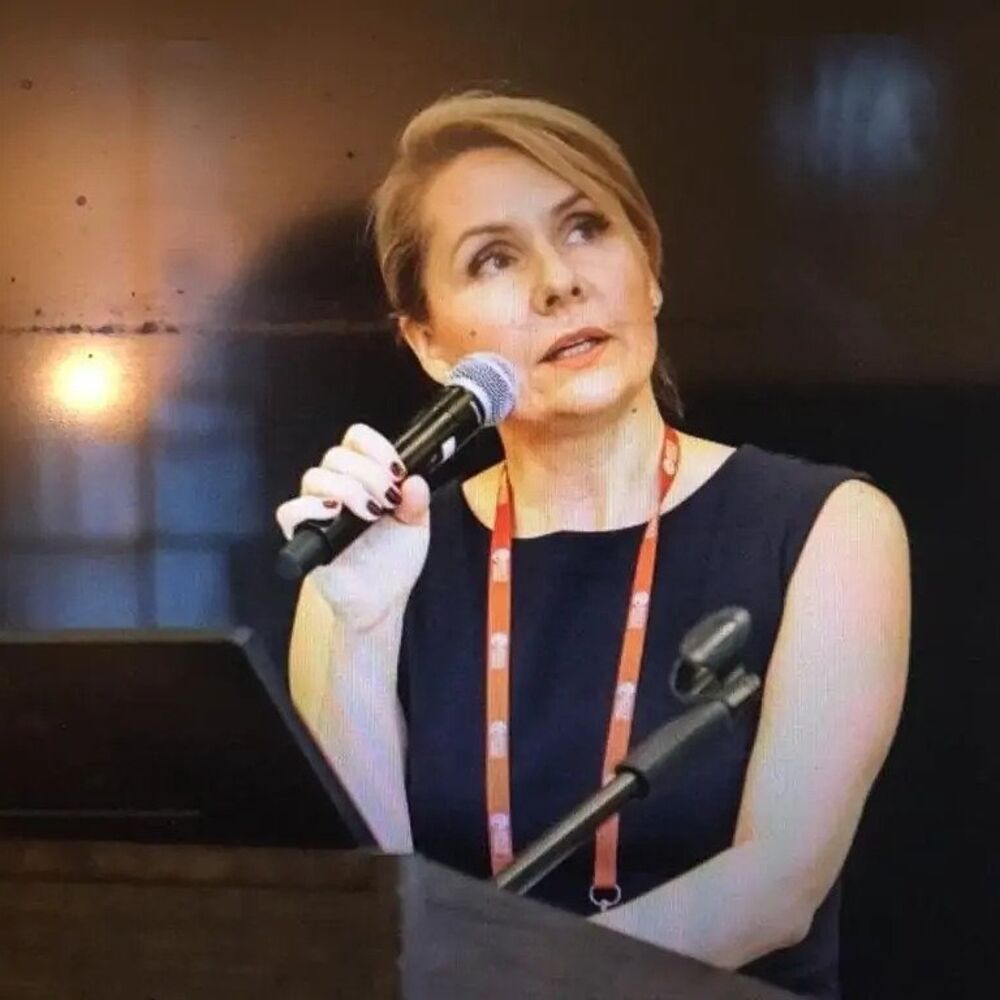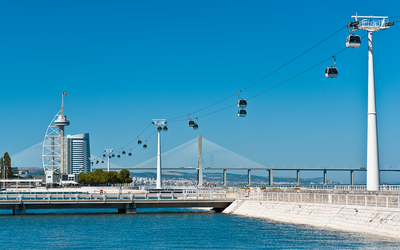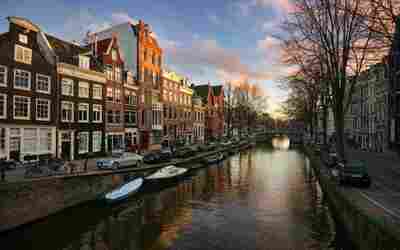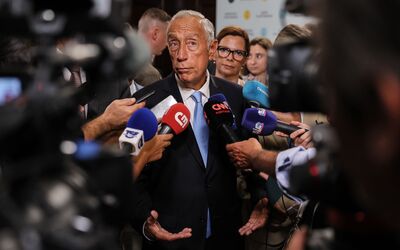Why is it important to have a "plan B"?
The new law "On mobilisation", which has caused a wave of criticism, will come into force on 16 May. The main complaint is the lack of demobilisation/rotation rules promised by both the Rada and the President. But this is not the only reason for discontent. Ukrainians living abroad are concerned about provisions that block consular services for persons liable for military service if certain conditions are not met. For example, we are talking about the issuance of a new passport, which is the main document outside the home country. Let's briefly recall the main provisions of the new law relating to persons liable for military service living abroad:
- the obligation to update military registration data for men aged 18 to 60 within 60 days of the law's entry into force;
- the obligation to carry a military ID card and present it when receiving consular services.
However, it is unclear how this requirement will be monitored and how those who do not have a military ID card will be able to obtain one. This raises concerns among those who left the country after the outbreak of the war and were granted temporary protection status but have not yet applied for a regular residence permit. The issue is also relevant for those who have not yet chosen a country for permanent residence, have only a Ukrainian passport and are considering moving or want to have a backup plan.
In the face of changing laws and uncertainty, Ukrainians are interested in resolving documentation issues as quickly as possible, including obtaining a second passport. There are three main ways to obtain citizenship: by national origin, investment or naturalisation:
- obtain citizenship by national origin in the country where you have roots and which issues passports on this basis;
- participate in the citizenship by investment programme;
- undergo the naturalisation process if you have lived in any country for a sufficient period of time to obtain citizenship but have not yet done so.
Let's look at the key differences between a passport and a permanent residence permit (PRP).
What is the fundamental difference between a passport and a permanent residence permit?
Why are many people now seeking a second passport? Many people seek to obtain a second passport because of its versatility and the ability to maintain an active status without the need to stay in the country that issued the passport. This is especially true for those who have lost their documents or are unable to obtain a new passport from their country's consulate. A couple of illustrative examples:
- You have lost your international passport and cannot get a new one at the Ukrainian consulate. Your European residence permit is no longer valid and you have no way to get a new one (in practice, you can sue, but it is a long process). Your second passport is not affected by this loss. Moreover, you can also re-link your residence permits in third countries to this passport.
- You want to extend your residence permit in Europe, but your Ukrainian passport has run out of pages. You cannot get a new document at the consulate and cannot extend your residence permit. You do not need Ukrainian documents to extend your second passport. Your passport of another country is a self-sufficient document that allows you to identify yourself. You will be able to extend your residence permit in Europe with it.
Therefore, if you are planning to obtain citizenship of one country and actually live in another country and obtain a residence permit there, it is better to apply for a second, non-Ukrainian passport. You can start the process of obtaining a second passport and a permanent residence permit in parallel, and then link the permanent residence permit to the new passport.
Second passport: what to choose?
There are several options for obtaining a second passport. Let's take a closer look at them.
Citizenship by national origin
Citizenship by national origin is granted by many countries. From this list, people from Ukraine are more likely to have roots in Poland, Hungary, Romania, Moldova, Bulgaria, Israel, Germany, Armenia, Serbia, Latvia, Lithuania, and Slovakia. Israel has special rules for granting citizenship: you need to be a maternal Jew or a Jewish widow/widower. You also need to be converted and not belong to any religion other than Judaism (however, in practice, your religious affiliation is not checked). If you meet these criteria, it is important to remember that Israel has compulsory military service for both sexes (the conscription age is up to 27 years, and a repatriate can be drafted no earlier than one year after moving), and the country is currently at war. It makes sense to carefully study the rules of conscription.
As for all other countries on the list, to apply for citizenship, you need to show descent from a citizen/ethnicity of that country, i.e. confirmation that one of your parents, grandparents or great-grandparents lived in that country, had the relevant nationality or citizenship of that country. Also, the marks on a birth certificate or data from church and parish registers are acceptable as evidence. Proof that your family supports the national customs and culture of a particular country can also be accepted as evidence of national origin - for example, this option is available in Poland. In some countries, kinship beyond grandparents is not considered (Romania, Armenia), while in others, on the contrary, the number of generations is not important, but language skills are required (Hungary).
Since there are many options for countries that grant citizenship by national origin, we will not go into details about each of them. If this option suits you, carefully study the list of required documents on the website of the country's consulate, and if you have everything in hand, the application process should go smoothly.
Important: applying for a passport by national origin is a popular scheme among fraudsters who allegedly offer to "find" a person's roots in the desired country. In fact, these are forged documents, and obtaining a passport based on them can lead to problems in the future.
Citizenship by investment
If you want to obtain citizenship of another country as quickly as possible, but you are not eligible for citizenship by national origin, you can consider citizenship by investment programmes. These programmes also make it possible to obtain a second passport in the shortest possible time. Currently, 10 countries offer their citizenship to investors. All of them, except for the St Kitts and Nevis programme, are available to Ukrainians. What is important to consider when choosing a programme?
- Investment options. The programmes are designed for both passive investments (donations to the country's development fund, stock investments, real estate investments) and active investments. The second option usually involves setting up a company, creating jobs and doing business in the country. Often, a country offers both options, but with different minimum investment thresholds.
- Investment amount. Programmes vary greatly in terms of investment requirements - there are options starting at $100,000 and some for $1 million. As a rule, the starting amount is indicated per person. In addition, do not forget that countries charge fees for processing your application, and they also vary.
- The strength of the passport. Countries with citizenship for investment programmes have different visa-free destinations, so it is important to understand which country you plan to live in and in which region it is important for you to be able to move freely.
- Citizenship application period. The duration of the process is an important criterion when the situation in your home country is extremely unstable.
- Requirements for staying in the country. Most countries with investment-based citizenship programmes do not require an investor to come to the country to complete the paperwork and spend a minimum period of time there. But there are exceptions.
These were the criteria we used to select the most relevant programmes for Ukrainian citizens. For example, Malta's programme is very expensive - from €690,000, even though this is a rental property, if we consider a purchase, the amount will exceed €1,000,000. The period for obtaining citizenship lasts from 14 months to three years (and the sooner you want to get a passport, the more you need to pay).
Jordan's programme starts at $750,000, but in reality, the $1 million option will suit most investors. At the same time, you can visit only 50 countries without a visa. The Turkish programme offers only the option of investing in real estate for a reasonable price ($400,000), while the market is currently in decline and it will be very difficult to sell the property in the future.
Egypt accepts donations from $250,000, but in terms of passport strength and visa-free destinations, it is more suitable for those working with the African market.
Antigua and Barbuda is similar in terms of conditions to other Caribbean countries, but requires investors to come to the islands for 5 days. Paraguay's programme is inexpensive, but it takes four years to get a passport.
Austria offers one of the strongest passports in the world, but you need to invest at least €3 million, and the application process takes at least two years.
Compared to other Caribbean countries, Dominica has a more complicated document verification procedure, and the programme is expected to rise in price in June.
Having analysed all the options available to Ukrainians today, we have settled on three optimal programmes - Vanuatu, Saint Lucia and Grenada. These programmes are united by their relatively low cost, fast passport issuance, the ability to complete the paperwork completely remotely, and the absence of minimum residency requirements - investors can obtain a passport and never come to the country of their new citizenship. In addition, these countries do not have taxes on international income for tax residents (in Vanuatu, on any income at all), which will be relevant for those who are looking for a way to reduce their tax burden and do not mind spending at least 183 days a year in the country.
Vanuatu
Speed of obtaining a passport: 3-6 months.
Features:
- The fastest procedure for obtaining a passport for investment in the world.
- The simplest document verification procedure (fewer additional documents are requested).
- The lowest cost per family.
- No visa-free access to EU countries and the UK.
- Brothers and sisters cannot be included in the application.
Who can be included in the application:
- husband/wife;
- unmarried children;
- parents of the main applicant and his/her spouse.
Investment options:
- grant grant to the country's development fund
- investment in coconut oil fund (partially refundable after 5 years*)
Costs of the grant option:
- Per single applicant: subsidy $130,000 + fees $5,000.
- For a family of two: subsidy $150,000 + fees $5,000.
- For a family of four: subsidy $180,000 + fees $5,000.
Costs for the coconut oil fund investment option*:
- One to four applicants: $157,000 investment + $8,000 fees.
*The coconut oil fund investment option is available for a family composition of 1 to 4 people. The investment amount is $157,000 for both one and four applicants, so it is most beneficial for a large family. This option provides for a partial return of the investment amount of $50,000 after 5 years.
Costs:
- Per applicant: $130,000 grant to the country's development fund or $157,000 investment in the coconut oil fund; fees of $5,000 (development fund) or $8,000 (coconut oil fund).
- For a family of two: $150,000 grant to the country's development fund or $157,000 investment in the coconut oil fund; customs duties of $5,000 (development fund) or $8,000 (coconut oil fund).
- For a family of four: $180,000 donation to the country's development fund or $157,000 investment in the coconut oil fund; duties of $5,000 (development fund) or $8,000 (coconut oil fund).
Saint Lucia
The speed of obtaining a passport: 8-10 months
Features:
- Visa-free entry to the Schengen area, the UK and other countries, as well as the possibility of obtaining a Canadian e-Visa.
- Caribbean countries have the simplest document verification procedure (fewer additional documents are requested).
- It is possible to include minor siblings in the application.
Costs:
- Per applicant: A free grant of $100,000 per applicant or a real estate investment of $200,000 or more (the property can be sold after five years); Fees: About $12,000 (for the grant) or about $32,000 (for the real estate).
- For a family of two: $140,000 grant for a family of two or a property investment of $200,000 or more; duties: approximately $19,000 (for the grant) or approximately $64,000 (for real estate).
- For a family of four: $150,000 grant for a family of 4 or a property investment of $200,000 or more; fees: approximately $21,500 (for the grant) or approximately $76,500 (for real estate).
Who can be included in the application:
- spouse;
- unmarried children under 30 years of age;
- parents of the main applicant and his/her spouse;
- unmarried brothers and sisters of the main applicant under the age of 18.
Investment options:
- non-refundable grant to the state
- Property investment (possible to sell after 5 years)
Costs for the grant option:
- For a single applicant: $100,000 subsidy + fees of about $12,000.
- For a family of two: subsidy of $140,000 + fees of about $19,000.
- For a family of four: subsidy $150,000 + fees about $21,500.
Expenses for the property investment option:
- Per single applicant: property from $200,000 + fees about $32,000.
- For a family of two: property from $200,000 + fees of about $64,000.
- For a family of four: property from $200,000 + fees of about $76,500.
Grenada
The speed of obtaining a passport: Up to 1 year
Features:
- Visa-free entry to the Schengen area, the UK and other countries.
- Visa-free entry to China.
- The only one on this list with the possibility of obtaining an E2 visa to the United States, which allows you to live and work in the country; you can also get a ten-year B-1/B-2 visa, which allows you to stay in the country for up to 6 months a year.
- It is possible to include adult siblings in the application.
Costs:
- Per applicant: a grant of $150,000 or a real estate investment of $220,000 or more (the property can be sold after five years); fees: about $11,000 (for the grant) or about $71,000 (for the real estate).
- For a family of two: a grant of $200,000 or a property investment of $220,000 or more; duties: approximately $21,000 (for the grant) or approximately $80,500 (for real estate).
- For a family of four: a grant of $200,000 or a property investment of $220,000 or more; fees: approximately $25,500 (for the grant) or approximately $85,000 (for real estate).
Who can be included in the application:
- spouse;
- unmarried children under 30 years of age;
- parents of the main applicant and his/her spouse;
- unmarried siblings of the main applicant over the age of 18.
Investment options:
- non-refundable grant to the state
- Property investment (possible to sell after 5 years)
Costs for the grant option:
- For a single applicant: subsidy $150,000 + fees about $11,000.
- For a family of two: subsidy of $200,000 + fees of about $21,000.
- For a family of four: subsidy of $200,000 + fees of about $25,500.
Expenses for the property investment option:
- Per single applicant: property from $220,000 + fees about $71,000.
- For a family of two: property from $220,000 + fees of about $80,500.
- For a family of four: property from $220,000 + fees of about $85,000.
Which country to choose?
As you can see, Vanuatu is more suitable for those
- who need to get a second passport as soon as possible rather than move freely;
- who have a residence permit in the EU;
- those with a large family.
Saint Lucia is a logical choice for those
- who want to save money and are willing to wait a few months longer;
- who want to include minor siblings in the application.
Grenada is an option for those
- those who plan to live in the United States;
- who work with the Chinese market and plan to visit China frequently;
- who want to include adult siblings in their application.
Those interested in the Grenada programme should hurry up: the cost of the subsidy to the country's budget will increase by $50,000 to $200,000. Documents must be submitted by 30 June 2024. A similar increase is expected in the Saint Lucia programme, where the subsidy may also rise to $200,000, although the final decision has not yet been made.
What kind of residence permit can I get in Europe in addition to a Caribbean or Vanuatu passport?
If you are planning to live in Europe with a Caribbean or Vanuatu passport, consider European investment PRP programmes. The UK offers investments in innovative start-ups, while participation in the Swiss programme will cost CHF 450,000 per year in tax. Austria requires knowledge of German, Spain has high taxes and can recognise you as a tax resident even for a short stay. In Italy, you can apply for citizenship after 10 years of residence, subject to certain conditions.
The programmes of Greece and Portugal are particularly attractive. Portugal does not require a minimum stay and allows you to apply for citizenship after five years. Greece still offers an affordable PRP for real estate investments, but the cost will soon rise. The Greek property market is booming and investments can be profitable.
Greece
"The Greek Golden Visa", similar to the programmes of the Caribbean countries, will soon become more expensive. Starting from 31 August 2024, the minimum budget for the purchase of residential property in popular regions such as Athens, Thessaloniki, Mykonos and Santorini will be set at €800,000. These regions have already faced an increase in the minimum investment threshold in the previous year. You can find a full list of these municipalities at this link. For the rest of the locations, the minimum investment will be €400,000. You will be able to invest in a single property of at least 120 square metres in area
It will also be possible to invest from €250,000 in real estate, subject to certain conditions. In order to obtain a Greek residence permit for an investment under the current conditions, a deposit of 10% of the property value must be paid by the end of August and the transaction must be completed by the end of the year. If the purchase of the initially selected property cannot be completed within the established timeframe, the investor will still have the opportunity to obtain a Golden Visa under the old rules.
What are the conditions for applying for a Greek residence permit for investment now?
To qualify for a residence permit, you need to invest at least €250,000 in real estate in Greece. In popular regions, you need to invest from €500,000. In order not to lose the status, the investment must be maintained throughout the entire period of holding a Greek residence permit obtained under the Golden Visa programme.
In the case of joint ownership of property, the minimum value of the share of the owner applying for the Golden Visa must be €500,000. The funds must be invested in one property: that is, it is not possible to purchase two houses for a total of €500,000.
"The Golden Visa" allows investors to obtain residence permits in Greece for their family members, including spouses and children under the age of 21. This means that they can live, work and study in Greece, as well as travel to the Schengen area without a visa. It takes about a few months to apply for a Golden Visa (it's hard to give a more precise timeframe because of the delay in issuing cards), but you will receive a certificate upon submission of your documents that allows you to enter Greece without a visa.
After you have been legally residing in Greece for at least seven years, you can apply for Greek citizenship. For more information on the Greek Golden Visa, please click here or contact a Migronis lawyer for advice.
Portugal
In 2023, Portugal made significant changes to the rules of the programme for obtaining a residence permit for investments. The possibility of obtaining a Golden Visa based on real estate investments was removed from the programme.
Now investors have the following options:
- Create at least ten jobs.
- Invest at least €500,000 in research and development.
- Invest at least €250,000 in artistic production, restoration or maintenance of cultural heritage.
- Invest at least €500,000 in investment funds based in Portugal, with a minimum maturity of five years, provided that at least 60% of the investment is made in Portuguese companies.
- Invest at least €500,000 in a company based in Portugal, either by starting a new company and creating five permanent jobs or by investing in an existing company and ensuring that it creates at least five permanent jobs or retains at least ten jobs. These investments must be maintained for at least three years.
For options 2 and 3, the minimum investment requirements can be reduced by 20% if invested in areas with low population density (less than 100 people per square kilometre or with a GDP per capita of less than 75% (national average).
Currently, the process of obtaining a Golden Visa takes an average of 1.5 to 2 years from the moment of submitting documents to receiving a plastic card.
Whichever combination of passports and residence permit you choose, remember that the cost of investment programmes is increasing, so it is better not to postpone the decision to apply for a Caribbean passport or a Golden Visa in Europe. This is especially true for Grenada, Saint Lucia, and Greece.








